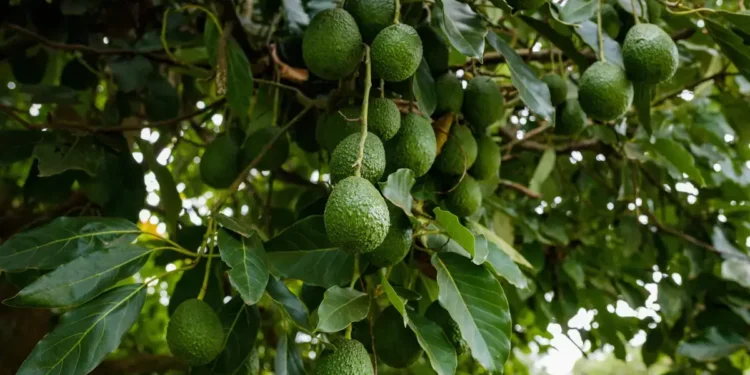
Agriculture is a crucial part of Kenya’s economy, contributing approximately 20% to the country’s gross domestic product. The demand for agricultural products is increasing as the population grows nationally and globally. Therefore, the agricultural sector offers opportunities to earn high income. Here are the most profitable agribusiness ideas in Kenya.
Dairy farming
Dairy farming is a big agricultural business idea in Kenya. Kenya is among the top African countries with the highest milk consumption. The demand for dairy products such as yogurt, cream, cheese, ghee, and butter is rising. You can become a dairy entrepreneur and earn an income. The net profit per cow is between Sh16,000 and Sh18,000 per month. You can increase the profit margin by keeping more animals. Processing milk for cheese and yogurt is also an opportunity to boost your earnings from dairy farming.
Hass Avocado Farming
Hass avocado farming has gained popularity recently due to the high demand in Kenya and global markets. The global consumption of Hass avocado is projected to grow at an annual rate of 5.9%. The COVID-19 pandemic is one of the primary drivers of the global avocado demand, as it has compelled people to prioritize healthy eating.
One of the advantages of venturing into Hass avocado farming is the high earnings in the export market. The current wholesale price for Hass avocado in Kenya ranges between Sh10 and Sh17. Also, the Hass avocado variety is ideal for small-scale farmers due to its narrow spacing. With proper crop management, you can earn Sh300,000 – Sh600,000 from one acre of Hass avocados.
Vegetable farming
Vegetable farming is one of the lucrative agricultural business ideas in Kenya. Kale, spinach, cabbage, onions, and tomatoes are popular in the diet of most Kenyan households. You can also grow indigenous vegetables, including amaranths (terere/mchicha), pumpkin leaves, cowpeas, black nightshade (manage/osuga/mnavu), spider plant (saga) and jute mallow (mrenda). There is a massive demand for vegetables as urbanization engulfs various parts of Kenya.
Poultry farming
Poultry farming is on the list of the most profitable agricultural businesses in Kenya. You can generate a decent income from poultry farming as the demand for white meat and eggs increases countrywide. Indigenous (Kienyenji) chickens sell at much higher prices than broiler chickens. However, poultry farming is not restricted to chicken rearing. You can rear other birds such as guinea, ducks, and turkey.
Chicken farming can be done on a small scale or large scale. Vaccinate your birds and disinfect your poultry house to prevent diseases that can bring huge losses. Formulate your chicken feed and optimize feed allocation to cut costs.
Mushroom farming
The consumption of mushrooms in Kenya has increased immensely in recent years. However, only a few Kenyans are getting into mushroom farming. You can exploit the rising Demand for mushrooms to earn amazing profits. A kilo of mushroom fetches over Sh500. Mushroom farming requires a small space and can be done even in semi-arid and arid areas. Mushroom houses constructed from locally available materials provides the ideal climate for mushroom to grow. In Kenya, you can sell mushrooms to buyers such as Mushroom Blue, Mushroom Guru Kenya, and WEGA mushrooms.
Beekeeping
The demand for honey in Kenya and globally is high due to its health benefits. Additionally, honey is a critical raw material for beauty products. So, beekeeping is one of the viable agricultural business ideas with sweet returns to farmers. The capital needed to start beekeeping is relatively low.
Pig farming
The rise in pork eateries in the peri-urban areas has pushed the demand for pigs up. Also, the increased pork meat processing is creating a huge market for pigs. There is always a market for pigs, as demand currently exceeds supply. You can tap into the country’s demand for ports to make more money. The good thing about pig farming is that pigs multiply very quickly. One sow can give you between 8 and 18 piglets twice per year. Pigs sell at different prices ranging from Sh15,000 to Sh25,000.
Fish farming
Kenya’s fish supply deficit makes fish farming a profitable agribusiness idea. Some fish species to consider for your venture include Catfish, Nile Perch, and Tilapia. Assess your environment before choosing the species to rear. You can also venture into the production of fingerling for sale. As in other agriculture ventures, you must work with experts to prosper in fish production.
Fruit farming
In Kenya, fruits are in high demand due to their health benefits. Fruits are also raw materials for an array of food processing industries. This makes fruit farming an agribusiness idea with good returns. There is a whole host of fruit you can produce, including dragon fruit, watermelon, thorn melon, oranges, mangoes, pepino melon, banana, pineapple, pawpaw, and avocado.
Tree farming
Kenyan farmers have one goal in common, and that is to have a venture with high earnings. Tree farming qualifies as a decent agricultural business idea. The venture not only gives you an income, but it also allows you to contribute to the country’s efforts to increase tree cover. Eucalyptus and pine trees are the most valuable trees that can make you money due to the high demand for timber in Kenya and other neighboring countries. A mature eucalyptus tree can for Sh10,000 ($65).
Bamboo farming
Bamboo farming is uncommon in Kenya, and many farmers are reluctant to grow the crop. The unpopularity of bamboo farming, coupled with the rising demand for bamboo products, gives you the chance to earn a lot of money. The retail price of bamboo stem ranges from Sh150 to Sh500.
Related: Profitable Side Hustles in Kenya
Summary
Various agribusiness ideas in Kenya allow you to be self-employed or earn an extra income. Demand for agricultural materials is growing rapidly as the global population grows. Climate change is also threatening food security in Kenya and across the globe. Thus, farming is one of the most profitable ventures for Kenyans. Before venturing into the above ideas, it is important to consult agriculture experts in your region.

